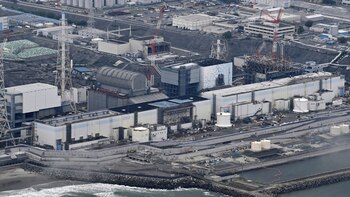
In a historic turn and after several months of speculation, the unanimous decision of the FIFA Council to approve the candidacy of Spain, Portugal and Morocco to host the 2030 World Cup was announced. To the surprise of many, it was also announced that three other countries will be part of the organization.
Uruguay, Argentina and Paraguay - they also applied to hold the tournament together with Chile - will organize three opening matches to commemorate the 100th anniversary of the first FIFA World Cup in Uruguay in 1930.
While the proposal is still waiting to be ratified at the FIFA Congress to be held in Bangkok next year, it would only be a formality. If carried out effectively, it would mean that the Centenario Stadium in Montevideo, which held the first World Cup final 100 years ago, will be the setting for the first opening match.
It will be followed by games in Argentina and Paraguay and will then be transferred to the countries in Europe and Africa to continue as unique venues. Among several peculiarities, the fact that it is the first tournament in history to be held in six countries and three different continents stands out.

“In a divided world, FIFA and football come together,” said FIFA President Gianni Infantino. “In 2030, we will have a unique global presence, three continents and six countries that will welcome and unite the world as we celebrate this beautiful game, the 100th anniversary and the FIFA World Cup together,” he continued in a statement.
The 2030 World Cup will mean the first organization in its history for Portugal, Paraguay and Morocco. For the latter, it represents a great success after having previously lost the candidacy five times. It is worth remembering that Spain hosted the 1982 edition, Uruguay had its chance in the first edition and Argentina in 1978, a tournament in which they also won its first of three titles.
“Each of our countries brings a vibrant football tradition, an unparalleled organizational experience and a capacity for innovation that will undoubtedly mark the future of the competition,” said Fernando Gomes, president of the Portuguese Football Federation. “Morocco, Portugal and Spain assume the demand and ambition to prepare the best candidacy ever submitted,” the three federations said in a joint statement.
FIFA also announced that the 2034 World Cup will be held in Asia, Oceania, or both. This opens the door to countries such as Australia and New Zealand that successfully organized the Women’s World Cup this year and to Saudi Arabia, which left the fight for the 2030 World Cup a month ago. The only Confederations invited to submit their candidacy will be from these two continents, since with the next World Cup 2026, in the United States, Canada and Mexico, and the one mentioned in 2030, the continents of America, Europe and Africa will be discarded.
It remains to be seen what other countries will want to apply for the 2034 edition. Meanwhile the next two world cups will be divided between nine countries, three continents and many flight hours.
Últimas Noticias
Sinner-Alcaraz, the duel that came to succeed the three phenomenons
Table tennis: Brazil’s Bruna Costa Alexandre will be Olympic and Paralympic in Paris 2024

Rugby 7s: the best player of 2023 would only play the medal match in Paris

Rhonex Kipruto, owner of the world record for the 10000 meters on the road, was suspended for six years

Katie Ledecky spoke about doping Chinese swimmers: “It’s difficult to go to Paris knowing that we’re going to compete with some of these athletes”





